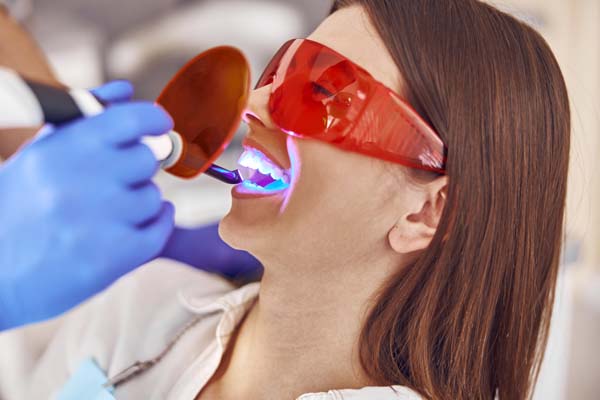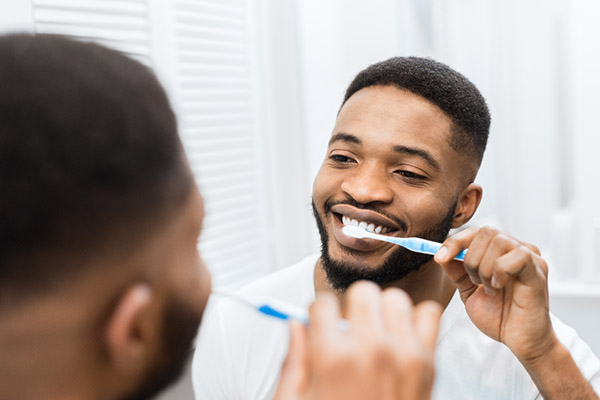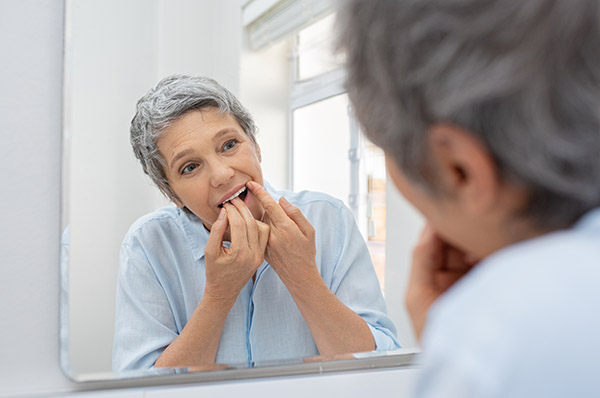How a Laser Dentist Can Treat Cavities

A laser dentist uses innovative dental technology in the form of dental lasers (lights) to provide a less-invasive and more precise treatment, reducing the need for sedation and allowing for safe and effective procedures. Among other things, laser dentists can treat common cavities.
Information from a laser dentist about treating cavities
Laser dentistry is a relatively new concept for many patients, and laser dentists receive many questions about how the technology can be used to treat dental cavities and address issues with soft tissue. The following is a review of how laser dentistry works for cavities.
What is laser dentistry for cavity fillings?
Laser dentistry for cavity fillings involves the use of light beams from special dental lasers to target and remove the decayed portion of a tooth. The lasers can target the decay without affecting the healthy part of the tooth, providing an often more precise process than is the case with traditional fillings. Once the laser effectively removes the decay, the cavity can be filled and the tooth can be sealed, completing the restoration.
The benefits of laser dentistry for treating cavities
Since laser dentistry to treat cavities is less invasive and does not cause as much discomfort as traditional dentistry, most patients do not require sedation. The laser used for the procedure is also quiet, while a drill can be loud and intimidating.
Laser dental fillings vs. traditional fillings
Traditional dental fillings involve the use of dental drills and other dental instruments to physically remove the decay. This can cause discomfort and lead to the removal of healthy dental enamel, creating a larger cavity that needs to be filled. Laser dental fillings are better at only removing the decay and causing little, if any, discomfort for the patient.
When a laser dentist might recommend treating cavities
A laser dentist first conducts an oral examination and may order dental X-rays to determine if the patient has any cavities or other oral health concerns that need to be addressed. If there are mild to moderate cavities, laser dental fillings may be recommended, but a root canal may be necessary for more severe instances of dental decay.
A focus on preventing dental cavities for the long term
The long-term focus for laser dentists is helping patients prevent cavities through regular check-ups and cleaning visits and good oral hygiene between dental visits. For weakened enamel, dentists may provide fluoride treatment to patients to strengthen enamel and help prevent cavities.
Additional insights to know about laser dentistry for acidity treatment
Here are several more insights into laser dentistry to help patients gain a better understanding of what it is and its benefits before their next visit.
Laser dentistry minimizes bleeding during dental procedures
Bleeding often occurs during dental procedures due to the dental instruments that are used. Laser dentistry is a minimally invasive procedure that largely replaces the need for dental tools such as scalpels. There are also usually fewer incisions and stitches involved with laser dentistry. Subsequently, this minimizes the bleeding that occurs during cavity treatment procedures (and other types of treatment).
Laser dentistry can be used for more than cavity treatment
From laser root canal procedures to laser gum contouring, many procedures can be improved with laser dentistry. For many patients, this takes away the fear of visiting the dentist because there are now less-invasive options available for procedures that have traditionally been more invasive.
Laser dentistry is similarly priced to other procedures
Due to its innovation, many patients assume that laser dentistry is more expensive. However, when it is used for diagnosing and treating cavities, laser dentistry is similarly priced to more traditional procedures.
The FDA approved laser dentistry usage in 1990
It may seem like a relatively new concept, but laser dentistry has been practiced safely for decades. Since the FDA deemed laser dentistry safe in 1990, laser dentistry treatments (especially for cavities) have continually gained in popularity, and they are now safely practiced by dentists across the U.S. and abroad.
Learn more about cavity fillings from our laser dentist
If you have signs of a cavity and want to find out more about laser dentistry for cavity fillings, contact our office today to schedule a visit. Our general dentistry team offers laser dentistry services to provide patients with less-invasive and more effective treatments for cavities and other common oral health concerns. We would be happy to answer any questions that you may have.
Are you considering laser dentistry in the Turlock area? Get more information at https://www.kingdentistry.com.
Check out what others are saying about our dental services on Yelp: Laser Dentistry in Turlock, CA.
Recent Posts
Practicing good oral hygiene basics is essential for keeping beautiful, strong teeth and gums as well as staying healthy throughout the entire body. Here are four of the most common ways to ensure excellent oral health and hygiene.Dentists recommend that everyone brush their teeth at least two times per day for two minutes each session.…
Though brushing your teeth is one of the most important oral hygiene basics, flossing is just as vital. Here is how flossing can strengthen your teeth and benefit your overall health.Flossing is an essential part of your oral care routine because it removes plaque from your teeth. Plaque is a soft, sticky substance that bacteria…
Brushing and flossing your teeth daily are oral hygiene basics, but what about using mouthwash? Is it an essential part of keeping your teeth healthy.Except for fluoride rinses, mouthwashes are generally not part of the daily oral care routine recommended by dentists, but that does not mean it has no value. Using mouthwash correctly can…
Although many people believe that plaque and tartar are the same, they actually have significant differences. Understanding the distinctions between these two dental conditions can help you identify their warning signs and practice oral hygiene basics to avoid them.Plaque is a soft film containing millions of bacteria that build up on your teeth, gums, and…


